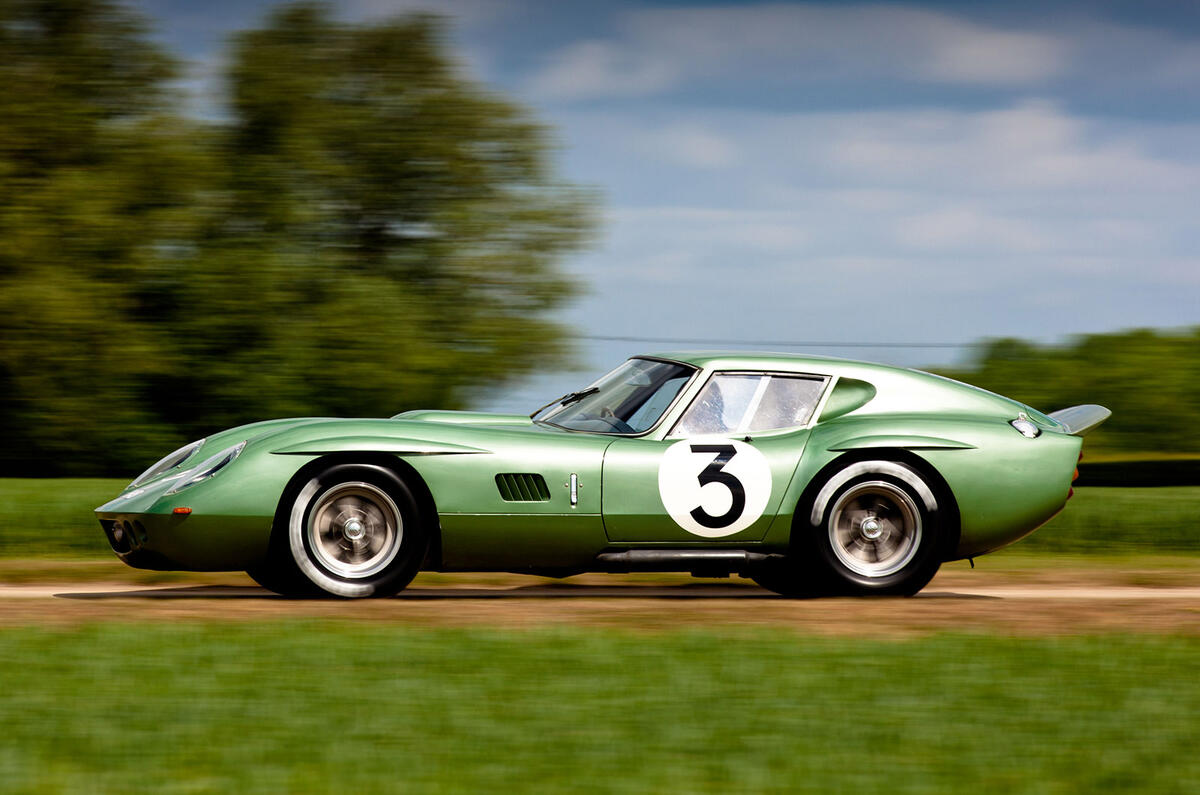In the early hours of 11 June 1964, AC Cars took a 4.8-litre Ford-powered Cobra Coupé GT car on to the M1 motorway to do a high-speed test run before the Le Mans 24 Hours.
The team's driver, Jack Sears, recorded 185mph on the motorway, and the national media heard about it - making the story front-page news. Sears had to keep a low profile until the furore died down — and, 50 years later, there are still a few things that he is keen to get straight.
“There was an awful fuss,” says Sears, now 84. “But it was all jolly unfair. Many teams were using the motorway for practice — the Rootes Group, Jaguar, Aston Martin — so it wasn’t something unheard of. And also, there wasn’t a speed limit at the time. We weren’t doing anything illegal because there were no limits.”
Even test tracks couldn’t provide a straight long enough to assess the car’s potential top speed in preparation for the three-mile Mulsanne Straight at Le Mans. The car’s top-end prowess would help the Thames Ditton crew outgun the rival American Shelby Cobra Daytona Coupés.
A plan was hatched to meet at Blue Boar Services (now Watford Gap) at 4am. The mid-June morning meant that the sun was coming up early and Sears took to the road.
“It wasn’t hard to find a clear space,” recalls Sears. “There were so few cars on the roads back then. We were lined up at the services, among all the lorry drivers sipping their cups of tea, waiting for the right moment.
“Off we went at about 4.15am. I was told that if I came up behind someone, it was best not to blast past at 180mph — maybe throttle back to about 120mph.
“I remember the engine being so strong. It kept pulling and pulling and I quickly hit 6500rpm and it simply wouldn’t go any higher. I knew that I was totally flat out — probably helped because the road was nice and level.”
The race machine was not fitted with a speedometer, so Sears had no idea of how fast he’d been travelling. Once he’d established that the engine was at its maximum, he left the motorway at the first available slip road, turned around and drove back.
“I went back to the team at a reduced speed. They got the slide rules out; they knew the gearing and the tyre size but they didn’t know the revs. Once I told them, they started working things out. Then they looked up with a smile and said to me: “That was 185mph.” I thought that was most exciting; it was the fastest I had ever been.
“I recall two policemen stopping at the services and coming over to us. They weren’t concerned in the slightest about what we were up to. They were more interested to have a look around the car. It was more likely they would ask for an autograph than write a ticket — because no laws were broken.”
It might have been within the law, but when Tony Martin, nephew of AC co-owner Derek Hurlock, happened to mention the feat in a lunchtime discussion in a Fleet Street bar, eavesdropping scribes knew they had a story. The topic filled many column inches in the nationals.
“I kept a low profile,” recalls Sears. “I thought it was being blown out of all proportion. I didn’t think I’d done anything out of the ordinary.”









Join the debate
Add your comment
I would imagine there are a
Memories
Speed limits = money